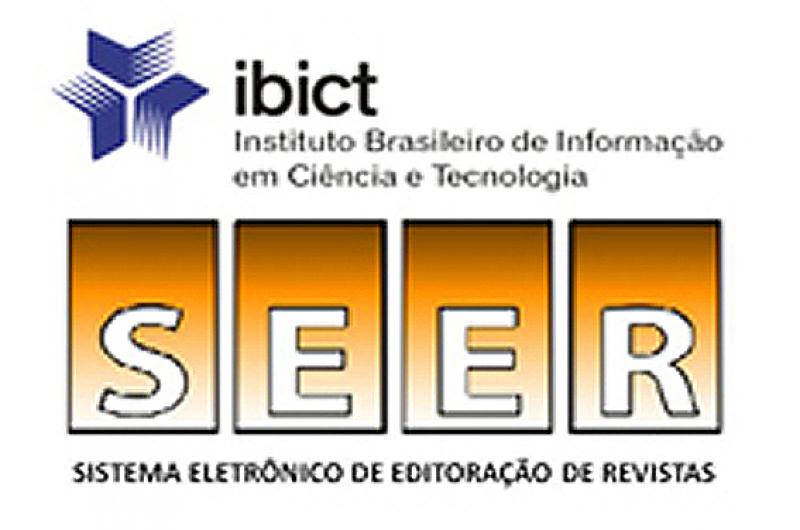The age of post - truth:
desmistificando a teoria da terra plana nas escolas públicas do piemonte norte do itapicuru/Ba
Visualizações: 818DOI:
https://doi.org/10.31416/rsdv.v12i1.524Keywords:
misinformation; scientific divulgation; Science teaching; Itapicuru; SBPCAbstract
With the advent of the Internet and social networks and the consequent weakening of conventional media, movements and groups that aim to spread disinformation and deny science have acquired increasing visibility, strength and reach in our society. This work aimed to educate the population about how the scientific method works and demystify the flat Earth theory. The research is exploratory and descriptive, assuming a qualitative approach in the treatment of collected data. This article analyzes students' views on a set of workshops on fake news and science denialism, exposing the results obtained and discussing their contributions to scientific literacy. It was evidenced that the workshops promoted actions for the formation of critical citizens. In addition, the workshops aroused the curiosity and creativity of children, adolescents and young people. Finally, the satisfaction of the students in being able to experience the construction and dissemination of their knowledge was observed.
References
ALLCHIN, D. What counts as science. American Biology Teacher, v. 74, p. 291-294, 2012b. Disponível em: https://online.ucpress.edu/abt/article/74/4/291/18429/What-Counts-as-Science. Acesso em: 10 mar. 2022.
ALLCOTT, H.; GENTZKOW, M. Social media and fake news in the 2016 election. Journal of Economic Perspectives, 2017, V.31, n.2, p.211-36.
BRASIL. Base Nacional Comum Curricular. Brasília: MEC. Versão entregue ao CNE em 03 de abril de 2018. Disponível em: http://basenacionalcomum.mec. gov.br/wp-content/uploads/2018/04/BNCC_EnsinoMedio_embaixa_site.pdf. Acesso em: 10 set. 2022.
CARVALHO, Anna Maria Pessoa de. Introduzindo os alunos no universo das ciências. 2005, Anais. Granada: Faculdade de Educação, Universidade de São Paulo, 2005. Disponível em: https://ddd.uab.cat/pub/edlc/edlc_a2005nEXTRA/edlc_a2005nEXTRAp529intalu.pdf. Acesso em: 02 out. 2022.
CUNHA, C. da. Educação científica e desenvolvimento: o que pensam os cientistas. Brasília: UNESCO, Instituto Sangari, 2005. CUNHA, M. B. A percepção de ciência e tecnologia dos estudantes de ensino médio e a divulgação científica. 2009. 363 f. Tese (Doutorado). Faculdade de Educação, Universidade de São Paulo, São Paulo, 2009.
DELMAZO, C.; VALENTE, J. C. L. Fake news nas redes sociais online: propagação e reações à desinformação em busca de cliques. Media & Jornalismo, v. 18, n. 32, 2018 p. 155-169.
DELUMEAU, Jean. A realidade do mito, São Paulo, domingo, 15 de agosto de 2004. Disponível em: https://www1.folha.uol.com.br/fsp/mais/fs1508200408.htm. Acesso em: 16 set. 2022.
Geração Z é mais vulnerável à fake news. https://neomondo.org.br/2018/07/12/geracao-z-e-mais-vulneravel-a-fake-news/. Acesso em: 16 fev. 2023.
GIL, Antônio Carlos. Métodos e Técnicas de Pesquisa Social. 6 ed. São Paulo: Editora Atlas, 2002.
Habowski, A. C., Conte, E., & Milbradt, C. (2020). A pós-verdade é verdadeira ou falsa? ETD. Educação Temática Digital, 22(2).
HÖTTECKE, D.; ALLCHIN, D. Reconceptualizing nature?of?science education in the age of social media. Science Education, v. 104, p. 641–666, 2020. Disponível em: https://onlinelibrary.wiley.com/doi/full/10.1002/sce.21575. Acesso em: 16 set. 2022.
OLIVEIRA, Sara Mendonça Poubel. Disseminação da informação na era das fake news. Múltiplos Olhares em Ciência da Informação, v. 1, n. 2, 2018.
Organizacio?n Panamericana de la Salud, 2020. Disponível em: https://iris.paho.org/handle/10665.2/52054. Acesso em: 20 jan. 2023.
PARK, Namje; KO, Yeonghae. Computer education’s teaching-learning methods using educational programming language based on STEAM education. In: international conference on network and parallel computing (IFIP). 9., 2012, Gwangju, Korea, September 6-8, 2012. Proceedings [...] Springer, Berlin, Heidelberg, 2012. p. 320-327.
SANTAELLA, Lucia. A Pós-Verdade é verdadeira ou falsa?. Barueri, SP: Estação das Letras e Cores, 2018. 98 p., 13 cm x 18 cm. ISBN 978-85-68552-80-3.
SANTOS, Maria Celça Ferreira; MIRANDA, Cícero Anastácio Araújo. Proposta de formação de leitores críticos para o combate às fake news. Revista Eletrônica do GEPPELE. Ano VI, nº 08, 2020.
SARAIVA, L. J. C.; FARIA, J. F. A Ciência e a Mídia: A propagação de Fake News e sua relação com o movimento anti-vacina no Brasil. In: 42º Congresso Brasileiro de Ciências da Comunicação. Belém, 2019.
SASSERON, L. H.; CARVALHO, A. M. P. Alfabetização científica: uma revisão bibliográfica. Investigações em Ensino de Ciências, v. 16, n. 1, p. 59–77, 2011. Disponível em: https://www.if.ufrgs.br/cref/ojs/index.php/ienci/article/view/246/172. Acesso em: 16 set. 2022.
Terraplanista morre em lançamento de foguete caseiro nos EUA. https://www.terra.com.br/byte/ciencia/terraplanista-morre-em-lancamento-de-foguete-caseiro-nos-eua,ffc01905b9b2c7099b9d6688c20ccc46s58sd89q.html. Acesso em: 16 fev. 2023.
VIGOTSKI, L. S. Pensamento e linguagem. 2. ed. São Paulo: Martins Fontes, 2000.
Downloads
Published
How to Cite
Issue
Section
License
Copyright (c) 2024 Revista Semiárido De Visu

This work is licensed under a Creative Commons Attribution 4.0 International License.















